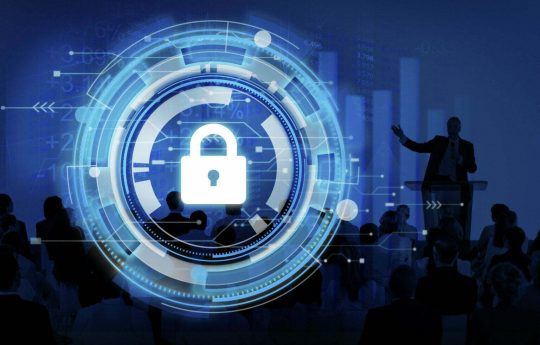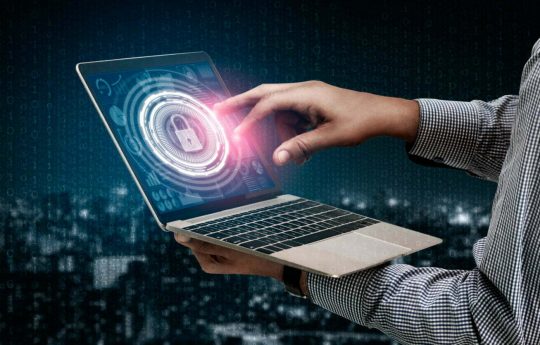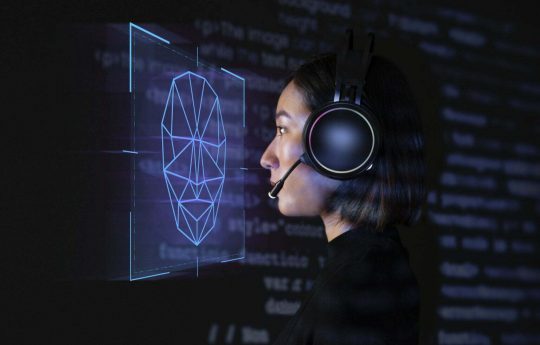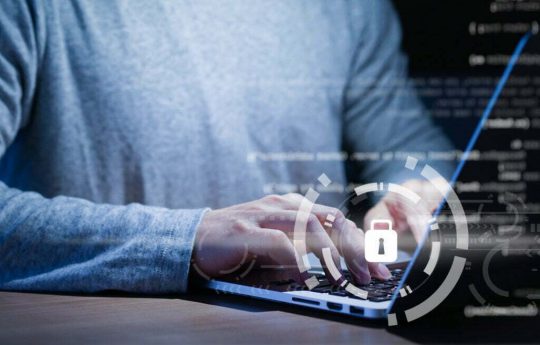Cybersecurity for Healthcare Providers: Is Your Practice at Risk?
Safeguard your patient’s protected health information (PHI) by employing efficient and updated cybersecurity measures for your practice.
Current healthcare environments use advanced technologies to access, store and distribute patient data in an easy and cost-efficient manner. Many practices use online systems to handle such processes, but any information stored online is at risk for Cybersecurity threats. According to a recent report, health data breaches have expanded drastically since 2014, and there were more than 29 million recorded data breaches in 2020 alone. This is why it is crucial for healthcare providers to integrate top Cybersecurity measures to deliver secure and excellent services to patients. Ultimately, Cybersecurity ensures smoother business operations and lowers the risk of the legal consequences of cyberattacks.
What is Cybersecurity for healthcare providers?

Modern technology has presented the healthcare industry with more convenient and innovative options for healthcare operations and patient transactions. By networking their devices, health providers can improve their services and workflows by using electronic systems in their processes. However, the rise of health information technology also comes with significant risks that can endanger the systems. Due to the amplified risk of cyberattack damages, Cybersecurity is more critical now than ever before for healthcare providers. It protects the health data and network systems connected to the internet in order to help practices avoid financial and legal crises.
Importance of Cybersecurity in healthcare

Nowadays, many healthcare providers use electronic health records or EHRs to establish accessible communication with other physicians as well as manage and share sensitive patient information with other physicians and patients. Consequently, the interconnection of modern IT systems increases security risks, and can lead to data breaches and compromised business operations. This is why healthcare cyberattacks have grown to be one of the most significant concerns in the health industry. Moreover, IT incidents, such as hacking, account for 92% of reported healthcare record breaches.
Ensuring that a patient’s sensitive health records are safe in an EHR system is vital to guarantee patient satisfaction and attain a sustainable workflow. Cyberattacks can result in loss of credibility and patient trust, and can even endanger a patient’s life. Additionally, health data breaches violate the Health Insurance Portability and Accountability Act (HIPAA)which legally requires healthcare entities to safeguard protected health information (PHI). The consequences of a cyberattack can have negative effects on your practice that are hard to recover from.
Common healthcare cyberattacks

All electronically stored data is vulnerable- patient information included. Cybercriminals can attack them in various ways, so we have listed the most common cyber-attacks here:
Ransomeware
This is a type of malicious software that allows cybercriminals to gain complete access to a computer. The attacker threatens to leak or damage patient information stored in the infected computers and demand ransom in exchange for data decryption.
Email Phishing
Carefully designed Emails attempt to lure health professionals to click on a link or download a file. These links or files may not always look harmful, but they typically contain malicious software that can endanger sensitive health data.
Data Breach
These are incidents of leaked confidential healthcare information. Data breaches can occur unintentionally due tomisclicks or misdirected addresses, or intentionally by cybercriminals.
Physical Attacks
Physical access of unauthorized personnel to any device with protected health information can compromise the security of the data.
How can you implement Cybersecurity for medical offices?

Enforcing efficient Cybersecurity in healthcare IT systems is crucial in fulfilling your responsibility for ensuring the safety of your patients. However, it is likely that most healthcare providers are not IT professionals. While technologies are becoming more relevant for the health industry, Cybersecurity is still a new area of expertise. That said, it is essential to invest time in learning more about security practices and technology assets you can incorporate into your practice. There are many ways to establish Cybersecurity for medical offices.
Is Cybersecurity purely technology?
Cybersecurity for medical offices combines safe technologies and processes for healthcare environments. In addition to using new secure technogies or processes, it is necessary to integrate security measures into the current systems your practice utilizes. Cybercriminals target sensitive health records using various methods, so many strategies are needed to safeguard patient information. Here is a list of medical and dental healthcare Cybersecurity tips you can use:
Cybersecurity Training
Technologies evolve from time to time. It is best that all staff who use the EHR systems undergo up-to-date training.
Mobile Protection
Sharing sensitive files using mobile devices is convenient, but it puts your information at risk. Any electronic health data that is stored or transferred through mobile devices should be encrypted for an extra level of safety.
Firewall Configuration
Safeguard networked systems by using a firewall. It filters any outside information entering your system and automatically denies potentially harmful data.
Anti-virus Software
Numerous cyberattack cases are due to malware and viruses that make data vulnerable. Invest in sustainable and efficient anti-virus software that prevents your computer from getting infected.
Strong Passwords
Create a strong and unique password that serves as your computer’s first line of defense from unauthorized access. It is also vital to update passwords from time to time to help lower risks.
Monitor Accessibility
Establish an access control list that will only grant permissions to authorized personnel. Controlling access to sensitive health records lowers the risks of leaks and data breaches.
Physical Security
Implement security measures for the device itself. Aside from cyberattacks, EHRs can also be compromised when devices are lost or damaged.
What you need to do to protect your practice

All HIPAA-covered entities are legally mandated to ensure the security of PHI and observe full compliance to HIPAA rules. Non-compliance to this act will lead to legal consequences and damage your credibility. Using sustainable and effective Cybersecurity measures for EHRs can seem overwhelming at first, but it is critical for long term safety. Different EHRs require different approaches to enforcing security. This is why it is vital to understand your processes and ensure your knowledge is up-to-date.
How Streamsoft can help protect your practice
Cybersecurity in healthcare is tailored specifically for safeguarding patient information. It is more than just integrating safe systems. It should be built-in, maintained, and continuously updated within your practice and the systems you utilize. Streamsoft can help you explore your processes more, so you can understand your current security gaps better. We can assess your current operations and provide customized solutions for your practice.





